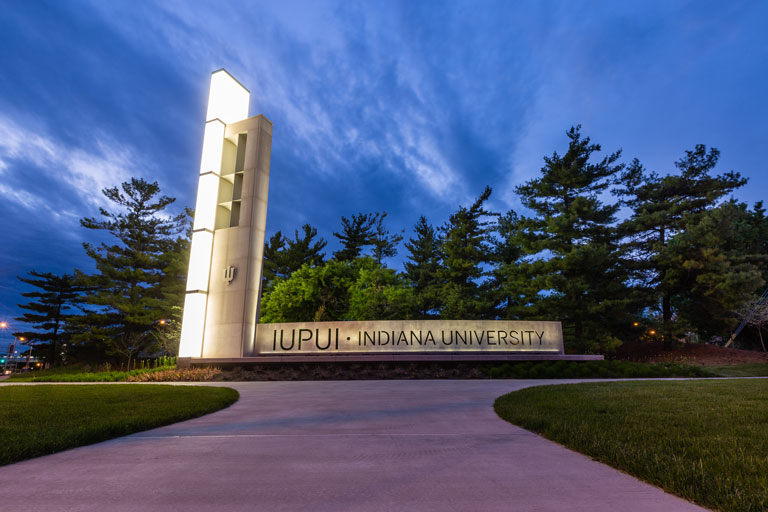June 23, 2020
As COVID-19 has spread and the need to understand its impacts has increased, IUPUI researchers are using their expertise to tackle a variety of issues related to the novel coronavirus.
To support these efforts, IUPUI's Office of the Vice Chancellor for Research launched the OVCR COVID-19 Rapid Response Grant Program, providing 17 projects with internal grants to address the diverse challenges posed by the pandemic. A total of $201,611 was disbursed to support the IUPUI projects.
“We are proud of the research and creative activity taking place here at IUPUI to address COVID-19, and we felt it was important to provide a means for continuing to advance that research,” said Janice Blum, IUPUI interim vice chancellor for research and graduate education. “These projects represent a variety of disciplines and are indicative of the many angles in which our faculty are addressing the viral pandemic and its impact on our neighboring communities, our state and the world.”
The grant program supports short-term projects focused on collecting critical information, determining preliminary results, and demonstrating access to essential resources to support full applications for external funding related to COVID-19.
Supported projects include:
- Understanding COVID-19 birth stories, Maria Brann, School of Liberal Arts
- Gender, caregiving disgust, and response to COVID-19, Amanda Friesen, School of Liberal Arts
- Effect of COVID-19 on Indiana jail populations and operations, Eric Grommon, O’Neill School of Public and Environmental Affairs
- A longitudinal pregnancy and COVID-19 profile, part of the Building Blocks of Pregnancy Biobank, David Haas, School of Medicine
- Rapid and highly scalable sequencing-based method for detecting and stereotyping SARS-CoV2 in human samples, Sarath Janga, School of Informatics and Computing
- COVID-19 seasonality and relationship to social vulnerability in Indiana, Daniel Johnson, School of Liberal Arts
- Museums respond to COVID-19, Elizabeth Kryder-Reid, School of Liberal Arts
- Evaluation of a urine-based SARS-CoV2 test, Tim Lautenschlaeger, School of Medicine
- Developing a resilience-based framework to respond to COVID-19 in tourism and hospitality, Becky Liu-Lastres, School of Health and Human Sciences
- Small-molecule covalent SARS-CoV-2 antagonists, Samy Meroueh, School of Medicine
- Targeting our most vulnerable? Measuring COVID-19’s impact on healthy adult and serious mental illness populations, Kyle Minor, School of Science
- Motivations for prosocial behavior and solidarity in response to the COVID-19 pandemic: directions for reframing the U.S. health insurance debate?, Anne Royalty, School of Liberal Arts
- Investigating the presence of the porcine coronavirus as a proxy of SARS-2 in surgical smoke during open and laparoscopic surgery: a pilot project, Dimitrios Stefanidis, School of Medicine
- Mental health practitioners and supervisors amid the pandemic, Patrick Sullivan, School of Social Work
- COVID-19 law & policy rapid assessment, Nicolas Terry, McKinney School of Law
- Analysis of rhinologic and olfactory outcomes in patients testing positive for COVID-19, Jon Ting, School of Medicine
- Measuring patients’ social risk factors to understand infectious disease and health disparities, Joshua Vest, Fairbanks School of Public Health


